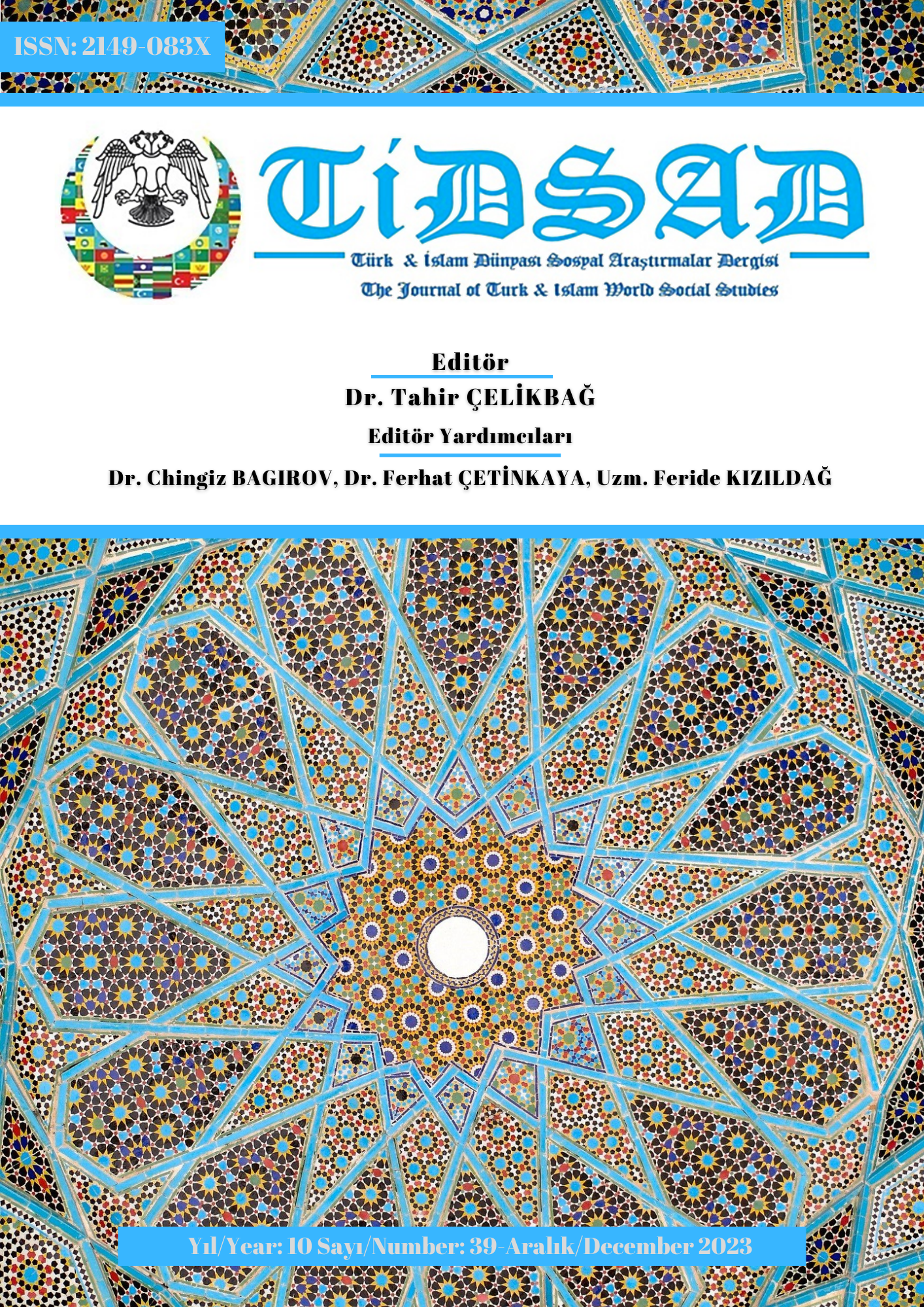Author :
Abstract
Küresel akımların hızla yayıldığı günümüz dünyasında toplumların kendi değerleri ile varlıklarını sürdürebilmesi her geçen gün daha da zorlaşırken, bu konuda en fazla sıkıntıyı İslam toplumlarının yaşadığını ifade etmek mümkündür. İslam ülkelerinde iktisadi ve siyasi sorunların yoğun bir şekilde yaşanmasında, ilgili toplumların ait oldukları dini inancın bu sorunlar üzerine müspet veya menfi etkilerinin olup olmadığı sürekli tartışılan bir konudur. Bu anlamda İslam öğretisinde; toplumsal birliktelik, akılcılık, güvenilirlik, adalet ile yeniliğe açık olma ve ilerleme konularında net bir tavır görmek mümkündür. Hal böyle iken ilgili ülkelerde yaşanan; etnik, din, mezhep ve siyasi temelli çatışmalar ve bunların nedenleri ve sonuçları bu çalışmanın konusunu oluşturmaktadır. Dolayısıyla bu çalışmada öncelikle İslam ülkelerinin iktisadi, siyasi, askeri, kültürel ve ar-ge konularındaki mevcut durumları ortaya konup, diğer ülkelerle kıyaslamaları yapılacak ve devamında Müslüman toplumların bir an evvel kaderci anlayıştan sıyrılıp, akılcı bir düşünce tarzı ile ekonomik, sosyal ve siyasal hayatı yeniden kurgulamalarının zarureti üzerinde durulacaktır.
Keywords
Abstract
In today's world, where globalization is rapidly spreading, it is becoming more and more difficult for societies to maintain their existence with their own values, and it is possible to say that Islamic societies are experiencing the most difficulties in this regard. In the intense economic and political problems experienced in Islamic countries, it is a constantly debated issue whether the religious beliefs of the relevant societies have positive or negative effects on these problems. In this sense, in Islamic teaching; It is possible to see a clear attitude towards social unity, rationality, reliability, justice, openness to innovation and progress. That being the case, the ethnic, religious, sectarian and political-based conflicts in the relevant countries and their causes and consequences will constitute the main subject of this study. Therefore, in this study, first of all, the current situation of Islamic countries in economic, political, military, cultural and R&D issues will be revealed and compared with other countries. In the following, the emphasis will be on the necessity for Muslim societies to leave the fatalistic approach as soon as possible and reconstruct economic, social and political life with a rational way of thinking.





